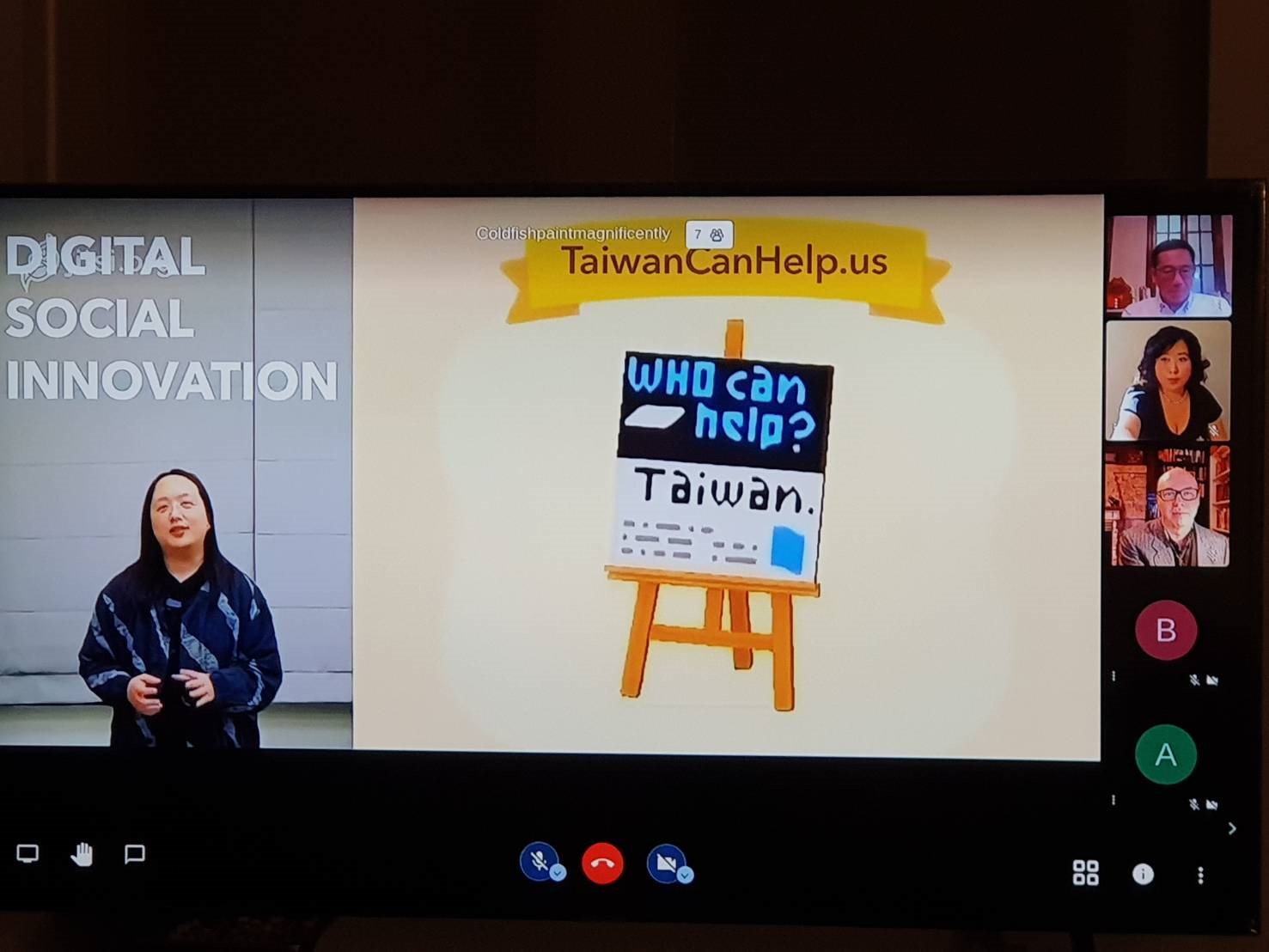Taiwan Shares its Experience at a Webinar on Global Insights on Canada's COVID-19 Fight

Learning from experience and from each other is vital for global efforts to combat the pandemic currently taking a heavy toll on lives, health, and livelihoods around the world. The MacDonald-Laurier Institute (MLI), a Canadian think tank, hosted a Global Insights on Canada's COVID-19 Fight webinar on Friday, April 24, 2020. It was designed to learn from other countries approaches to contain this virus. As its website states “Taiwan, for example, has had an exemplary record despite being sidelined by the World Health Organization. Taiwan has much to teach us if we would only listen. We have also seen positive developments and innovative practices in South Korea and Denmark as well.” https://www.macdonaldlaurier.ca/webinar-panel-video-global-insights-canadas-covid-19-fight/
The webinar opened with a video address by Taiwan’s Digital Minister Audrey Tang, who attributed Taiwan’s success against COVID-19 in large measure to Taiwan being an open society. Tang specifically mentioned the daily press conferences given by the Taiwan Center for Disease Control, and the government’s active solicitation of ideas from the public as key to the island’s success. She also mentioned a website which is updated every three minutes that shows which pharmacies currently have surgical masks in stock.
The crucial role that communications between citizens and governments is playing in combatting COVID-19 was echoed by the other participants.
Dr. Balkan Devlen, an associate professor at the University of Copenhagen, described Denmark’s quick decision to shut down schools and require public employees to work from home. He also pointed out that Denmark’s plans for reopening will engage civil society and all political parties. The reopening will be gradual and the details will be clearly communicated on government websites.
Dr. Tina J. Park, Vice-President of the NATO Association of Canada, attributed South Korea’s success in flattening the curve to the government’s coordinated, centralized strategy, and complete transparency about associated details. She also talked about people in South Korea sharing their mobile and credit data to identify and notify people who may have come into contact with COVID carriers which involves trust. She explained that many people in the West have privacy concerns when it comes to personal data, but in South Korea people are willing to share their private data if it’s for the public good. She also mentioned that South Korea didn’t experience the same level of panic buying seen in many countries because online shopping is the norm there.
The last speaker, Dr. Peter Chang, a member of Taiwan’s Control Yuan, said that success in the beginning means that 50% of the work is already accomplished. Once the virus spreads, as it has in North America, contact tracing is ineffective. He pointed out that a key factor in Taiwan’s success was a lesson learned from the SARS pandemic in 2003, namely, that stockpiling medical supplies is essential. Taiwan had stockpiles and the government took early action to ban the export of medical supplies. This ensured that there was a sufficient number of surgical masks for Taiwan’s population, which has been an important factor in limiting spread of the virus. Taiwan also ramped up production of masks to such an extent that many people there are donating their rationed masks to other nations, including Canada.
You can watch a recording of the webinar here: https://www.macdonaldlaurier.ca/webinar-panel-video-global-insights-canadas-covid-19-fight/?mc_cid=10a757977b&mc_eid=7647e39e02